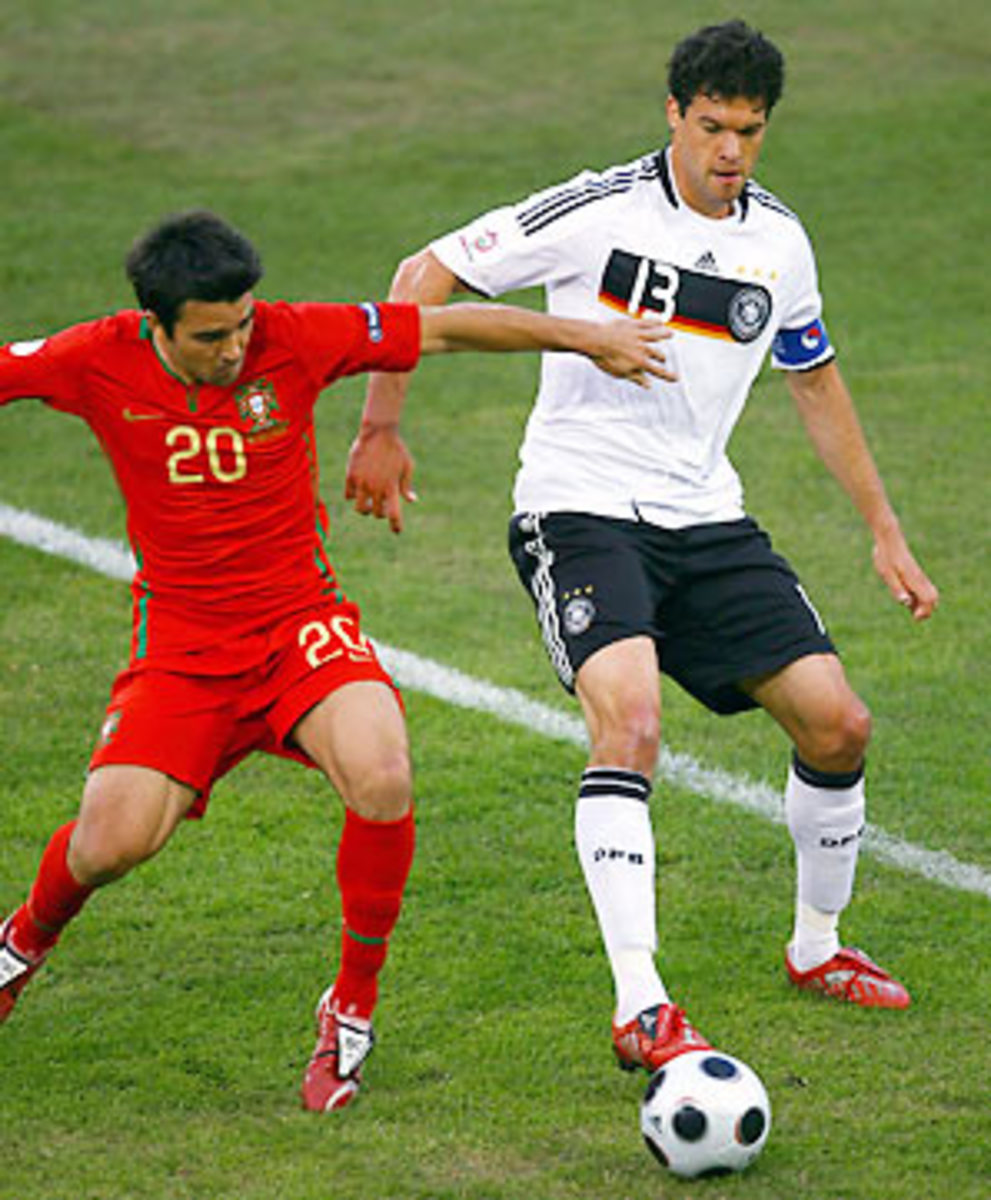
Rongen's Euro Notebook: The new names to watch, survivor games
U.S. Under-20 national team coach Thomas Rongen continues his periodic analysis on the European Championship. Rongen is a former Dutch national-team player and veteran of the NASL. He made his name in America with head coaching gigs with four Major League Soccer franchises.
Pay attention to what Germany accomplished in Thursday's shocking 3-2 quarterfinal win over Portugal, because it's a harbinger of what's to come in the knockout rounds. The lesson is this: What you've accomplished in the group stage doesn't necessarily translate into one-off situations. Big-game experience becomes huge, and the key to winning is your mentality. You must be able to manage games over the entire 90 minutes. Germany is a great example, and Italy is another team that falls in line -- you can't count an experienced team out just because it did poorly in the group stage.
In Germany's case, its coach made the necessary adjustments -- Joachim Löw switched from a traditional 4-4-2 formation to a 4-5-1 to take advantage of Portugal. If you can match your foe and shut down their strengths, you'll come out on top. Germany effectively negated the speed of Cristiano Ronaldo and played to the strength of its own players. Now, a lot of teams will try the same.
Now that Portugal is out, the biggest star at the Euros -- Ronaldo -- is done for the tournament. So who do we hang our hat on now? The rules change completely. Individual talent and flashy offensive skills mean very little in the knockout stages. Now, the savvy players who can affect games the most will emerge as the stars.
At this point, you've got to pay attention to Germany's Michael Ballack. I've said it before, and I'll say it again: Ballack has been huge on both sides of the ball. He scores goals, he's involved in the offense, but he also helps out on defense. At the end of the day, it's two-way players like that who will be remembered. Croatia's Luka Modric is another player with similar qualities.
Some other players to watch at this stage are Italy's Daniele De Rossi, the Netherlands' Wesley Sneijder -- who's been terrific -- or even Russia's AndreiArshavin, who made an immediate difference against Sweden in his first game back from suspension. Don't get me wrong, Ronaldo is a great player, and was touted as the biggest star at the Euros for all the right reasons. But he's not the kind of player who's able to take a team on his shoulders and carry it to the finals, as Fabio Cannavaro did for Italy at the 2006 World Cup. Believe it or not, it's easier to dominate a league over 38 games, as Ronaldo did, than to be the go-to guy when the pressure is on.
The big story here is Russian manager Guus Hiddink coaching against his own country. But what's even more compelling is that these teams play almost identically: They're both slow-starting 4-2-3-1 formations that focus on the counterattack. Tactically, this matchup will be a wash. So at the end of the day, the individual players will make the difference. And though it's tempting to pick the upset, I just don't think Russia has the horses.
The quality is there tactically and technically, but it's hard to go further down the depth chart of guys who can make a difference outside of Roman Pavlyuchenko and Arshavin. The Dutch counter with at least four players who are proven difference-makers: Sneijder, Ruud van Nistelrooy, Arjen Robben and Robin van Persie. They have the edge in depth, too. When you can bring guys like Dirk Kuyt and Orlando Engelaar of the bench, that's huge -- in the late stages of a tied game, for instance, that's the difference.
Then again, Hiddink is the biggest wild card there is. He may well be the best coach in the world. Every team he has ever managed in big competitions -- in World Cups or European Championships -- has always made it to the second round, regardless of the talent on paper. That includes teams like South Korea and Australia.
This is a great matchup because of how different these teams are. It's flash vs. consistency. Spain (mostly) plays a traditional 4-4-2, with perhaps the best strike tandem in the Euros with David Villa and Fernando Torres. They've shown they move the ball extremely well and can blow you away with their midfield.
Italy, on the other hand, hasn't played well. But here's where the experience plays big. They're without captain Cannavaro and defender Marco Materazzi. Injuries have laid into the roster, and Andrea Pirlo and Gennaro Gattuso can't be counted on. But they have the depth to plug in Massimo Ambrosini and Mauro Camoranesi and can still lock down opponents in the biggest games. They proved that in their run to the World Cup title two years ago, even when they were one of the least-fancied teams.
Striker Luca Toni has been in great positions to score as well; sooner or later, he'll get on the board, and that's scary. This will be a tight contest, compared to the wide-open attacking affair Netherlands vs. Russia should be. In a mental battle, the Italians always have the edge.





